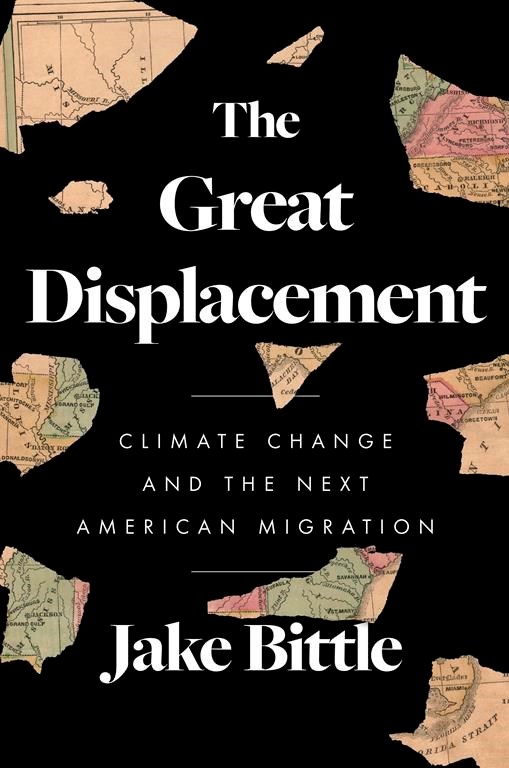ŌĆ£The Great Displacement: Climate Change and the Next American Migration,ŌĆØ by Jake Bittle (Simon & Schuster)
Wildfires, floods and rising seas are giving Americans a foreshadowing of what is to come, the author of a new book about the environment says ŌĆö disruptions on a near Biblical scale.
In ŌĆ£The Great Displacement,ŌĆØ Jake BittleŌĆÖs reporting strategy was to visit places such as Big Pine Key, Florida (flood) and Santa Rosa, California (fire) and use the natural disasters that overcame them as parables for what looming climate change is going to bring. ŌĆ£Climate disasters expose fundamental flaws in where and how we have chosen to build our communities,ŌĆØ he writes.
Why are people in fire and flood danger areas not moving?
ThatŌĆÖs where Bittle diverts into some psychology basics, writing that peoplesŌĆÖ emotional ties to their houses and communities often overrule their fear of being burned out or washed away.
In Long Beach, California, the Belmont Shore peninsula already floods in some high tides and storms and some global warming forecasts show the area underwater in a few decades. So are house prices sagging as people flee in fright?
Just the opposite.
House prices in the low-lying Belmont Shore area rose just shy of 8% last year to a median of $1.3 million, according to realtor.com
Solutions? Bittle often finds government, particularly the federal level, at fault for not doing enough.
But much of the danger millions of Americans find themselves is of our own making. We want to live at waterŌĆÖs or forestŌĆÖs edge; now the day of reckoning is coming ŌĆØfor a society that has attempted to tame the forces of nature,ŌĆØ Bittle writes.
Bittle takes some literary excursions in the book, describing, for example, the streets in an abandoned North Carolina town as ŌĆ£weighed down by a pulsing, ponderous silence.ŌĆØ
It was astonishingly quiet, he explained, visiting the town after federal programs finally persuaded people to leave, rather then be flooded out.
Bittle often ventures into the unfairness of climate change, returning to a theme that ŌĆ£the burden of relocationŌĆØ will fall most harshly on lower-income people who can least afford to fortify their house or move.
Will it?
Much depends, he writes, on decisions ahead regarding which places to save because for sure we will not have enough resources, for example, to build a sea wall for every beachside community.
While the prognosis for beachside communities is grim, the book notes that some climate-change winners already may be emerging.
ŌĆö Buffalo, New York, for example, is calling itself a ŌĆ£climate refuge city.ŌĆØ
ŌĆö Duluth, Minnesota already is billing itself as ŌĆ£climate-proof Duluth.ŌĆØ
ŌĆö Cincinnati wants to be a ŌĆ£welcoming place for people fleeing disasters and extreme heat.ŌĆØ
Government policies and programs to encourage people to move from dangerous coastal or fire-prone areas to those cities and other towns in the northern central states ought to be considered, Bittle says.
So far though, the housing market appears to be ignoring the growing risk.
Jeff Rowe, The Associated Press




